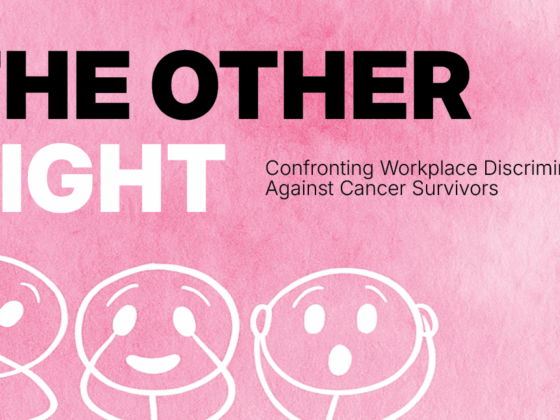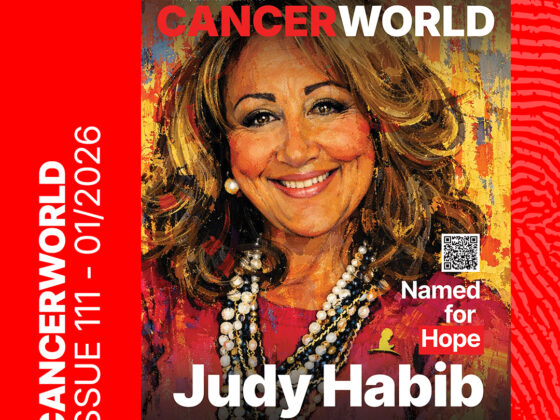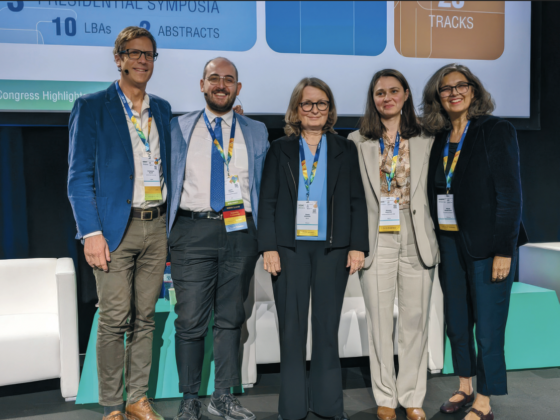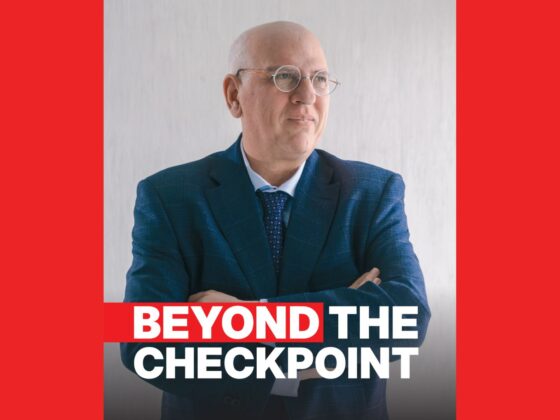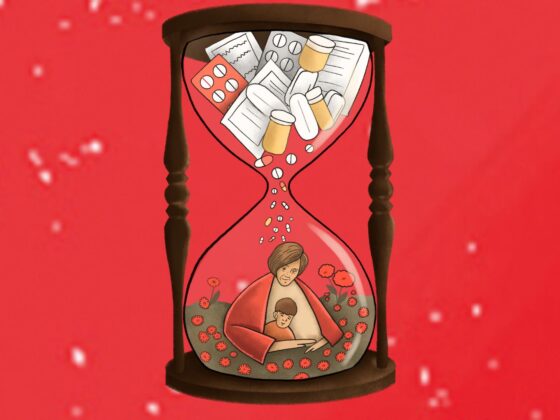At 17, Annet Namubiru’s life changed drastically. Then a secondary school student, she began to fall ill without anyone understanding why.
“I was at school and started feeling weak and tired,” she recalls. “As you know, when a girl of 17 or 18 falls sick, people start thinking of pregnancy.” Her menstrual period came, but never stopped. “It just didn’t go away,” she says. “Everyone thought maybe I had done something wrong.”
The school doctor tested her for malaria and other common illnesses like brucellosis, but each time, the results were negative. “He told me I was fine, maybe I just didn’t want to study,” Namubiru says. But she knew something was seriously wrong.
Soon, she could barely walk up the hill to fetch food from the school dining hall. “I would rest halfway before continuing,” she says. “I was too weak even to attend class.” The bleeding worsened—from her gums, her nose, and through unexplained bruises that appeared as dark patches on her skin. Alarmed, the doctor ordered a complete blood count.
“When the results came back, he was scared,” Namubiru recalls. “He said, ‘I don’t know what you’re suffering from, but whatever it is, it’s serious. You need to go to Mulago Referral Hospital immediately.’” Her hemoglobin level was just 5. “He was surprised I was still walking,” she says. An ambulance took her to Mulago, and her parents were called.
After several tests, doctors suggested a bone marrow examination. The results confirmed leukemia, a type of blood cancer.
“When my mother saw the word ‘leukemia,’ she said, ‘No, it can’t be. No one in our family has ever had cancer.’ But then a doctor confirmed it. It hit me hard. I was young, I had dreams, and suddenly everything turned into survival.”
People Said, ‘She Has Cancer, She’s Going to Die’
Namubiru was referred to the Uganda Cancer Institute (UCI) in Uganda’s capital, Kampala, where she began intense treatment. “The treatment was brutal,” she says. “You stop eating, you get wounds in the mouth, you lose your hair and strength. I spent about three months bedridden.”
Outside the hospital, rumors spread. “People said, ‘She has cancer, she’s going to die,’” she recalls.
Her family faced enormous emotional and financial strain. “My mother stayed in Kampala to take care of me for six months, leaving my father and siblings at home,” she says. “At one point, my parents even thought of selling our home in Iganga to pay for my treatment. But one of my father’s friends said, ‘You’ll remain in poverty. That child is going to die anyway.’”
Cancer-Free, But Not Free
Despite everything, Namubiru’s treatment worked. Returning to school brought new challenges. “When you go back, everything feels different,” she explains. “You’re traumatized, afraid of infections. I resumed after a year, but mentally and emotionally, I wasn’t the same.”
Even after being declared cancer-free, fear lingered. “Any time I caught the flu, I thought, ‘Oh my God, it’s back,’” she says. “They told me to take medication for two years. Even after finishing, I refused to stop. I thought I would die without it.”
Namubiru, now a mother of three, emphasizes the need for mental health support and public awareness. “People still think cancer is a death sentence,” she says. “They tell caretakers things like, ‘Why waste money? She’s going to die anyway.’ That ignorance hurts. The UCI also needs to follow up on survivors.”
Namubiru also talks about the difficulties of navigating long-term health needs—such as family planning. Ten years after her cancer treatment, a doctor required her to return to her oncologist for authorization of the family planning method she should use.
For survivors like Namubiru, the next frontier is not just survival—but the right to a full, fertile life.
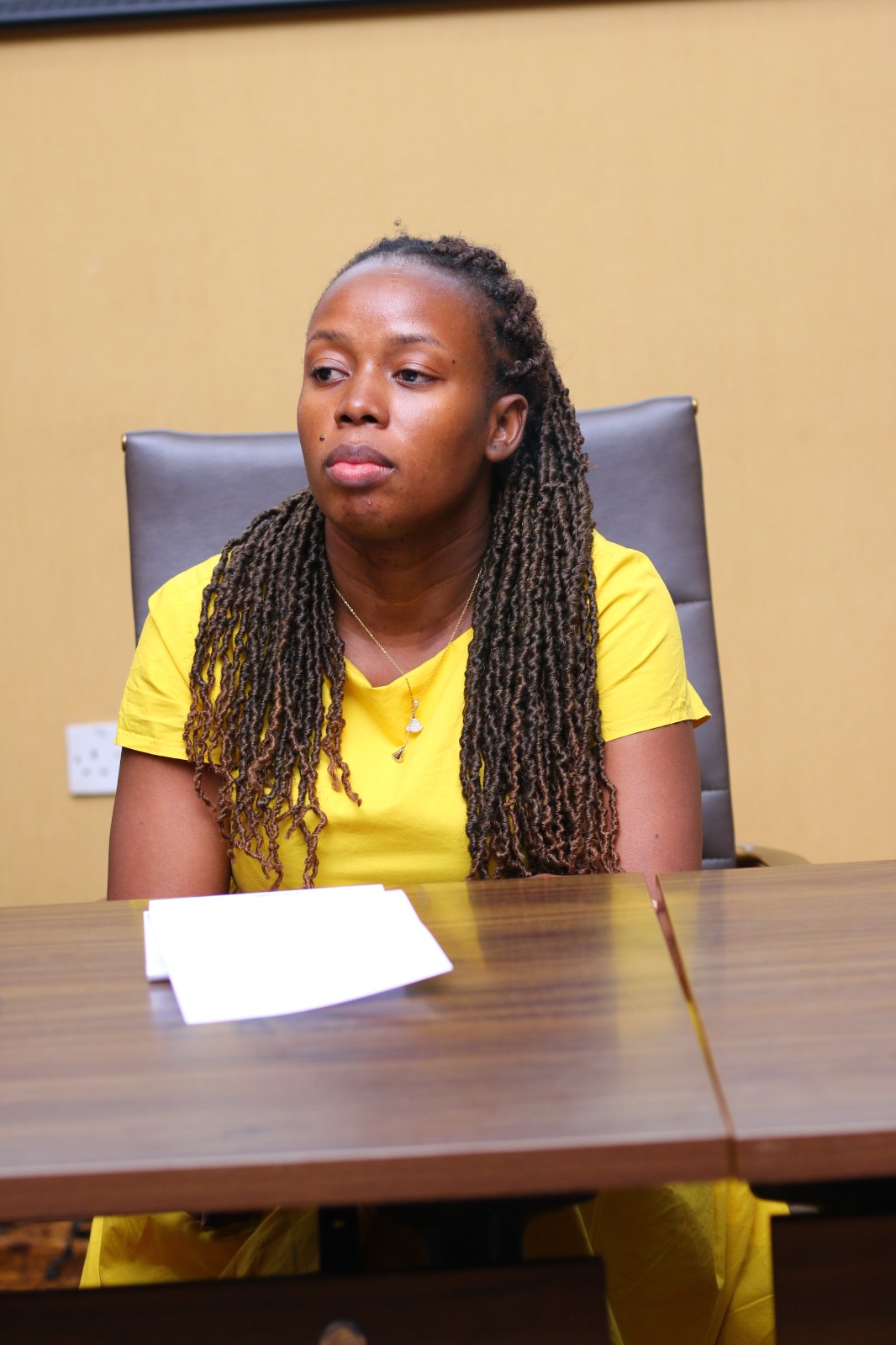
Fertility and the Survivorship Journey
For many cancer survivors, reproductive health becomes a central concern. In African societies, the inability to start a family can have profound personal and social consequences. As survival improves, questions about life after treatment—especially fertility—are growing louder.
Dr. Anthony Kayiira, one of Uganda’s few oncofertility specialists, describes his work as standing at the intersection of oncology and reproductive medicine. “Oncofertility is the intersection of oncology and reproductive medicine—protecting a patient’s ability to have biological children before, during, and after cancer treatment,” he explains.
Dr. Kayiira leads IVF and andrology services at Mulago Specialized Women & Neonatal Hospital and serves as a Senior Clinical Research Fellow in oncofertility at the Uganda Cancer Institute. His role spans three things: risk-stratifying children and adolescents for treatment-related gonadal damage; counseling families and coordinating fertility preservation where feasible; and building systems—protocols, training, and research—to make this care routine rather than exceptional.
“In Uganda and much of Africa, fertility is tightly linked to identity, marriageability, and social standing,” he says. “As survival improves, I kept meeting young people who beat cancer but were blindsided by infertility. Those conversations—and parents asking, ‘Will my child one day be able to have a family?’—pushed me to dedicate my clinical and research work to closing that gap.”
In Uganda, oncofertility services are still developing: post-pubertal girls can undergo egg retrieval and cryopreservation, and post-pubertal boys can bank sperm, while preservation of ovarian or testicular tissue for prepubertal children is not yet available locally, though it is practiced internationally. “We need a national clinical pathway, trained teams, and reliable cryostorage infrastructure,” Dr. Kayiira explains. “The cost to establish ovarian tissue cryo capacity is not astronomical—it’s a low six-figure investment—but the impact would be life-changing.”
A 2021 study by Dr. Kayiira and colleagues revealed that 46% of female survivors and 21% of male survivors experienced infertility in their first attempts to have children. Nearly half reported dissatisfaction with the inability to have biological children, and 79% could not recall discussing fertility during treatment or follow-up care.
“We expected elevated risk, but the magnitude was sobering,” Dr. Kayiira says. “It reveals systemic gaps—late or absent fertility discussions, limited preservation options, fragmented referrals, and poor survivorship follow-up. It’s a call to embed fertility counseling at diagnosis, not years later when options are fewer.”
“Discussions about fertility should begin at diagnosis,” Dr. Kayiira advises. “Rapid-start pathways allow immediate sperm or egg collection. Even when opportunities are missed, we can learn from each case to improve care for future patients.”
“It’s not rocket science,” he adds. “We can assess risk based on the chemotherapy regimen, radiation exposure, age, and pubertal status. Patients are then classified as low, intermediate, or high risk. High- and intermediate-risk patients should be referred to an oncofertility specialist immediately.”
The Mulago Specialized Women and Neonatal Hospital—part of the Mulago National Referral Hospital—provides fertility preservation for cancer survivors, offering egg and sperm freezing free of charge to safeguard reproductive options before treatment.
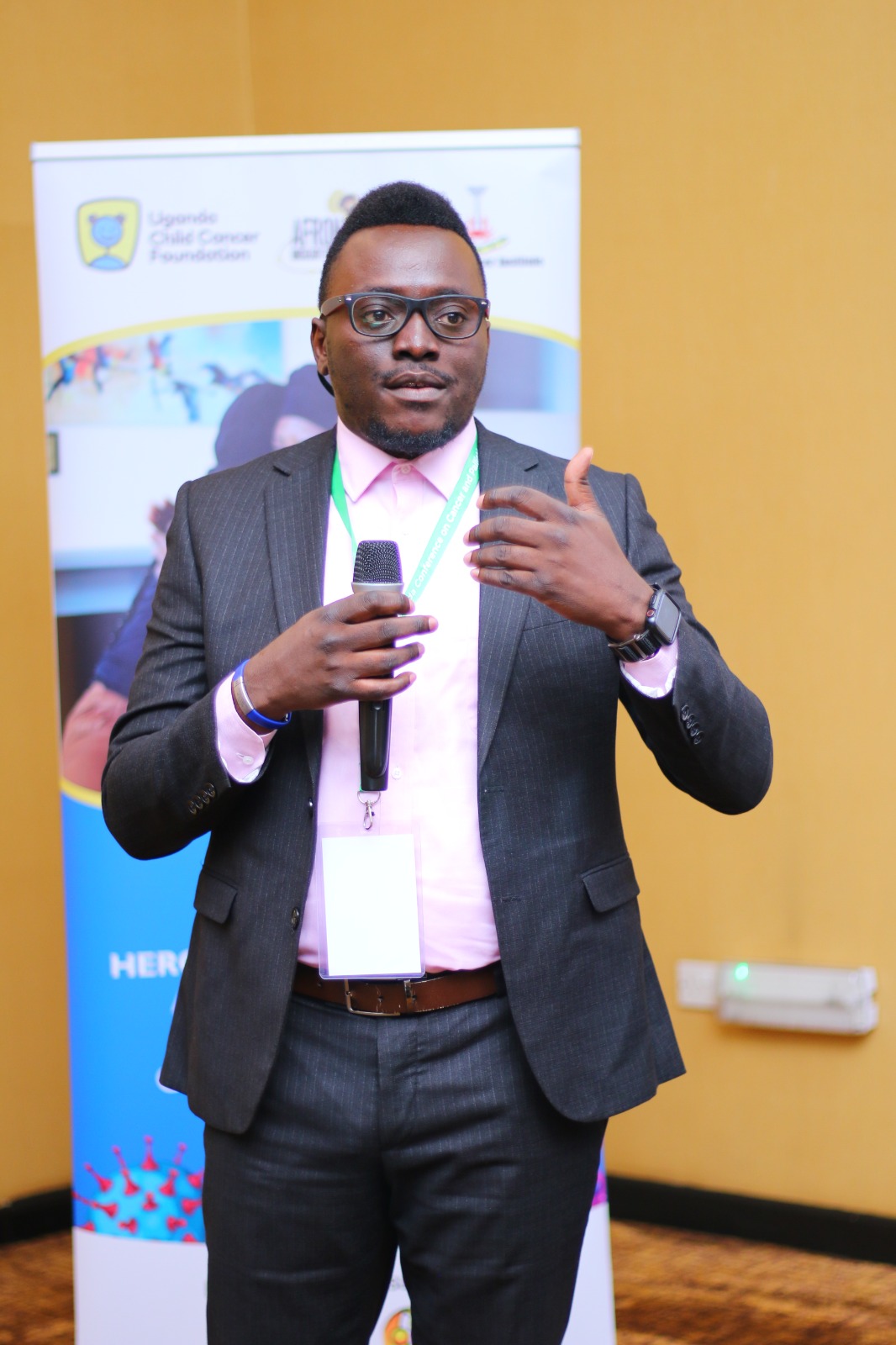
He and his team are piloting decision aids and standardized counseling tools in oncology clinics. “Fertility risk should be flagged in every cancer ward the same way we flag infection or malnutrition,” he says. “Once the first few successful preservations happen locally, momentum will accelerate.”
“Every child deserves a future that includes the possibility of having children,” Dr. Kayiira says. “Even with current limitations, fertility preservation is achievable. With support and infrastructure, children can still have the opportunity to start families in the future.”
Building a Survivor-Centered System
Dr. Joyce Balagadde Kambugu, the Head of the Division of Pediatric Oncology and Hematology of the Uganda Cancer Institute and the President of SIOP Africa, emphasizes the need for holistic survivorship programs. “We do not have statistics. We do not know the proportion, where they are, their needs, the stigma they face, or the struggles of their families, siblings,or integration into society. We really don’t know everything,” she says.
Education, she argues, is a symbol of hope. “Most of the children we see at the Cancer Institute want to go back to school. Even when they are strong enough, we often don’t let them because we think their immunity is suppressed.”
Survivorship care, she says, must begin at diagnosis. “We need to prepare children for surviving, even if it is just one or two years. For example, if a child is 10 years old and in Primary Five (P5), we must begin interventions during treatment, arrange for teachers to come to the ward, and create safe spaces for exams.”
Dr. Balagadde Kambugu also stresses reproductive health planning. “We need to think about fertility from the beginning. Are you a teenager? You should have early information about potential risks and options, including sperm or ovarian preservation. Families should be part of the decision-making process.”
Giving survivors a voice is equally important. “When they are together, they can guide us on how to improve care, advocate through schools and civil society initiatives, and influence policy,” she says.
This vision is already taking shape in Uganda through a collaboration with the Uganda Child Cancer Foundation. “We started a proper registry about a year ago to track children who have completed treatment,” Dr. Balagadde Kambugu explains. “We can now invite them to forums, involve them in awareness campaigns, and monitor their clinical follow-up.”
Adolescents require particular attention. “They have unique needs and should have custody over decisions affecting them. We are creating spaces where teenagers can speak privately about fertility, contraception, and other concerns,” Dr. Balagadde Kambugu says. Dedicated adolescent clinics are expected to begin in January 2026, with the new 350-bed UCI hospital in 2027 featuring fully separated male and female adolescent units.
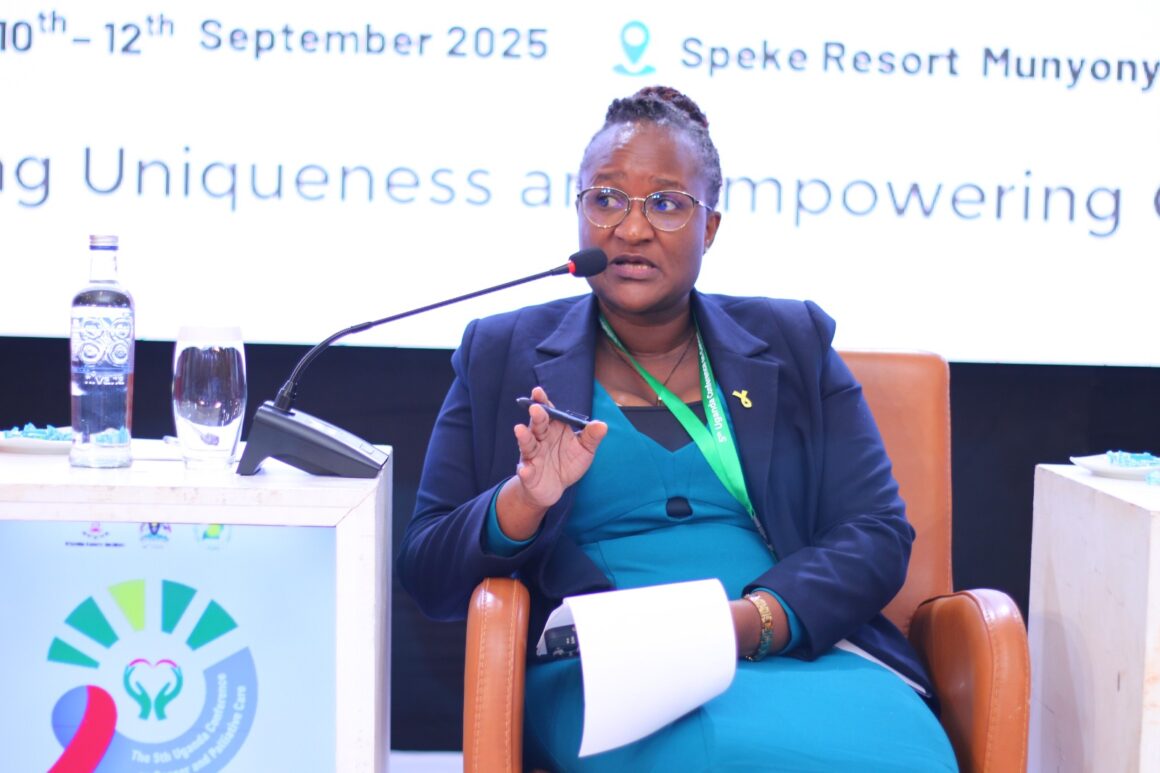
“Survivorship is not just about survival,” she concludes. “It’s about ensuring quality of life, education, and future opportunities for every child who fights cancer. We may not have all the resources yet, but we have started, and we are planning carefully to build a system that truly supports children through and beyond cancer.”


